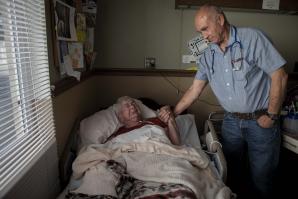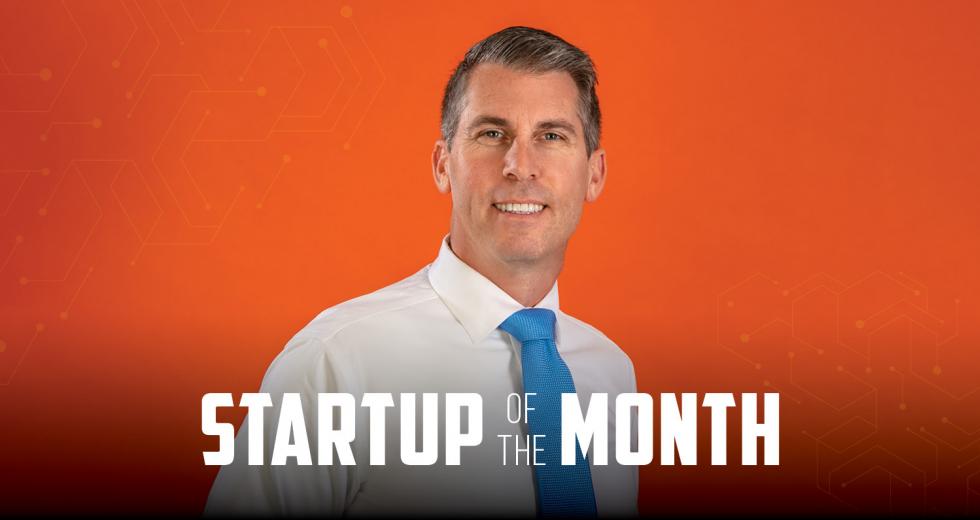In acute-care settings, medical carts are supposed to make nurses’ jobs easier. But the current hospital environment consists of carts that may hinder productivity, says Taggart Neal, president of American River Medical, a medical-cart reseller and distributor. His Sacramento-based startup, TagCarts, aims to upgrade this health care staple to help nurses do what they do best.
“We see the nurses as the superheroes of health care,” Neal says. “TagCarts is simply empowering them to be the best caregivers they can possibly be.”
Medical carts are mobile storage units for health care equipment, supplies and medication, and may include workstations for access to electronic data. These carts use cord- and battery-power systems, which nurses have to monitor, bend down to plug in and replace batteries. These tedious tasks aren’t taxing individually, but over time, they may cause fatigue and potential injury and prevent nurses from focusing on patient care, says Neal, who has more than 16 years of experience in the industry.
His patent-pending TagCarts include docking and charging stations that eliminate the need for plugs and batteries that need to be swapped out. They also include surface wireless charging for mobile devices. Neal believes TagCarts is health care’s next generation of medical carts, designed to help improve nurse workflows, patient outcomes and hospital innovation. But he doesn’t fault the makers of medical carts for the current environment of care.
Discuss this story and others on our LinkedIn page; follow Comstock’s on LinkedIn by clicking or tapping here.
“Manufacturers aren’t bad guys,” he says. “The market just doesn’t know what it wants yet — because they haven’t seen it till now — so they haven’t demanded cart manufacturers change. Until now. Our research and directional data supports this.”
American River Medical partnered with a marketing research class at Northern Arizona University (Neal’s alma mater) to conduct a market research study in spring 2019. The teams found that TagCarts could be useful in clearing hallways and reducing the strain from plugging in traditional carts. Neal says TagCarts will also include RTLS, or real time location system, making them easier to locate when needed in emergencies. These benefits could help nurses give patients more time and attention, the team concluded. Recommendations from the study include more surveys and potentially a trial run at a test-market hospital.
In addition to Neal, the TagCarts team consists of nine advisory board members. Jamie Christensen, advisory board director for TagCarts, has known Neal for years. With his background selling software to large enterprise clients and fundraising, Christensen advises Neal on growth strategies, seeing TagCarts as big opportunity to modify the outdated medical ecosystem.
“In health care, technology is still pretty broken,” Christensen says. “If you go to a doctor’s office or hospital, you see how all this equipment and all the things these poor folks working there are doing aren’t integrated. It’s almost like super-glued and duct-taped together.”
Christensen also sees potential in bringing carts into people’s homes, serving as a centerpiece for in-patient and out-patient care. “I see him building a nice niche and also a wedge into a bigger opportunity,” he says.
Neal expects to hit the target of the initial seed round of $1.5 million, which closes in November. As a U.S. Navy veteran, Neal set out to have the carts made exclusively by veterans and/or Americans with disabilities. He says the startup has a dialogue open with local manufacturer PRIDE Industries, known for electronics manufacturing expertise with a staff consisting of disabled and veteran Americans.
“My dream is to help other veterans — and other disadvantaged Americans — by offering them the dignity and honor in building TagCarts, which will serve to heal Americans in hospitals across the country,” Neal says. “Most veterans having been where they have and seen what they’ve seen, have a big heart for others. This is a way for them to channel that empathy and continue serving their fellow Americans, indirectly, one cart at a time.”
Recommended For You

Bridging Health Care Gaps
WellSpace Health CEO Jonathan Porteus on serving the underserved in our communities
WellSpace has operated since 1953 and provides a range of health care services across nearly three dozen sites in Sacramento, Placer and Amador counties. Comstock’s spoke with CEO Jonathan Porteus about how his organization works to achieve regional health.

Rx for Merger Madness
Hospitals and physician practices are consolidating; for businesses covering their workers, that means re-evaluating current plans to keep health care costs from soaring
In the 2019 American economy, the big are getting bigger. Mergers are everywhere — the number of mergers and acquisitions exceeded 15,000 in 2017, a record for a single year, with 2018 a close second.

New Budget Boosts Health Coverage For Low-Income Californians
Ann Manganello survives entirely off her Social Security stipend: $1,391 a month.
That doesn’t amount to much in the pricey desert enclave of Palm Springs, Calif. — especially for someone who contends with a host of expensive medical problems, including a blood vessel disorder, complications from a recent stroke and frequent bouts of colitis.

In Rural Areas, California’s Physician Shortage Getting Worse
California is facing a growing shortage of primary care physicians, one that is already afflicting rural areas and low-income inner city areas, and is forecasted to impact millions of people within ten years.




Comments
Very proud of what you are doing and providing for health care workers and veterans alike. I taught with your Mom at Cordova High for many years while you were very young.
Thank you Mr. Yeager!!